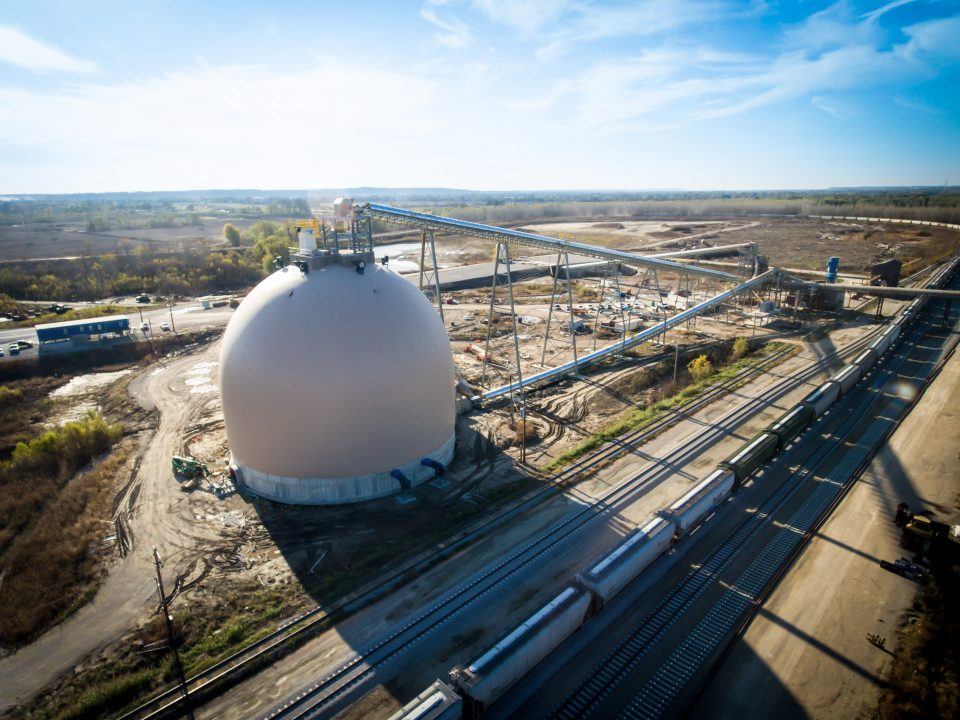Grain producers know that mold, mildew, and time are major concerns when storing large amounts of product during warm seasons. According to DTN/The Progressive Farmer, since grain stored improperly can experience quality issues as the weather warms up, farmers are encouraged to stay on top of management efforts like grain monitoring, coring bins, and equalizing air temperature in the bin by operating fans.
Although these are good housekeeping measures and no mechanized system can completely replace them, a reinforced-concrete DomeSilo provides a high level of self-management. A dome is a more manageable environment than a traditional silo or flat storage because it does not experience dramatic temperature fluctuations.

Protected, insulated storage
A more consistent environment is achieved thanks to science and innovative construction. The building process begins as the Dome Technology team inflates a PVC airform that provides the “form” for what will become the concrete shell; the airform will remain in place indefinitely to provide weatherproofing for the structure. With the airform inflated, polyurethane-foam insulation is applied to the inside to temporarily provide rigidity and to protect the concrete shell for the lifetime of the structure. Shotcrete is then applied, with rebar providing reinforcement.
With construction complete, a dome staves off some boundary issues steel bins and traditional silos face. First, the airform acts as an impermeable membrane that keeps moisture at bay. Second, the heat-sink properties of the reinforced concrete shell combined with the outer layer of polyurethane foam prevents extreme interior temperature fluctuation. These features reduce heating and cooling of the walls and air inside, minimizing or eliminating condensation that damages grain’s integrity.
Aeration systems
Besides maintaining integrity, a major advantage of climate control is that businesses can safely store product until demand drives up prices. Domes reduce the risk of mold and mildew and allow grain to be stored for longer time periods.
How much longer depends on the location, temperature, and humidity. Maintaining proper moisture content is key for multiple reasons, including increased revenue. Aeration systems maintain the moisture and temperature, making sure interior conditions help achieve or preserve the appropriate long-term-storage moisture content. The systems Dome Technology uses are designed specifically for aerating grain, typically keeping product within 1 to 2 percent of the desired moisture content.